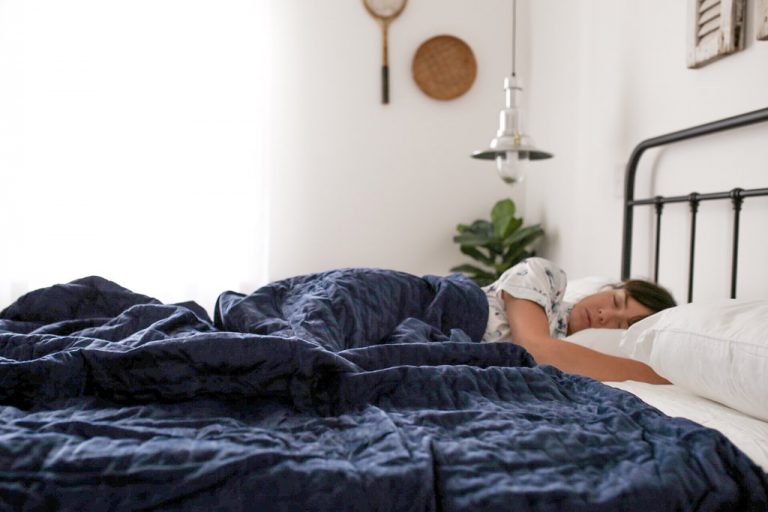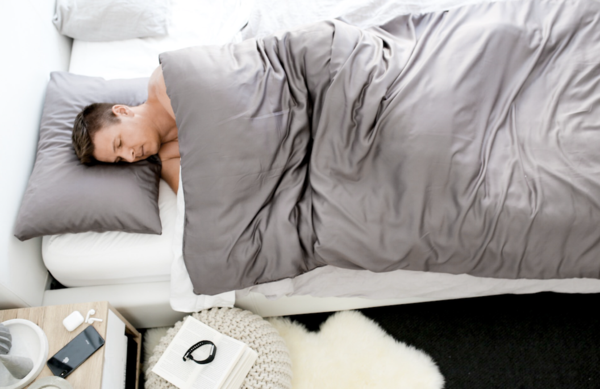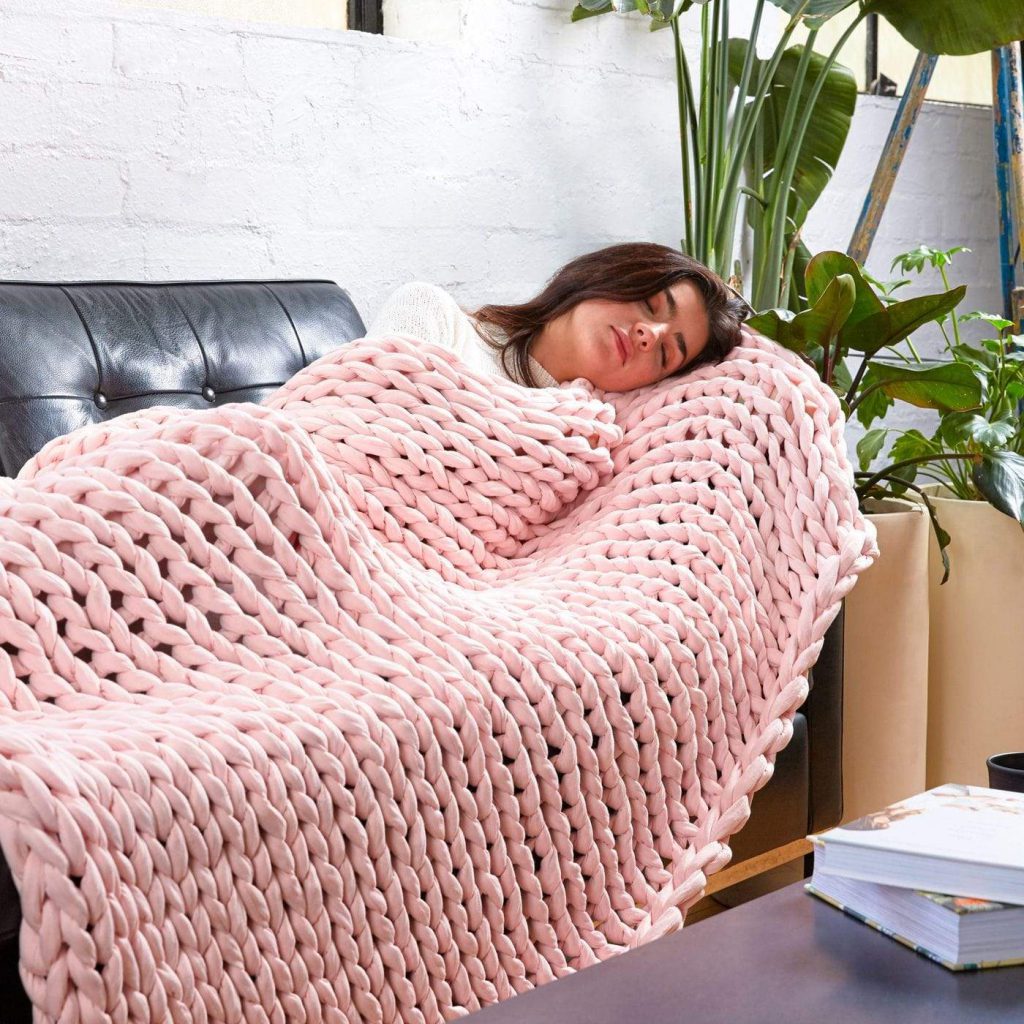Are You Amongst the Two Thirds of Aussies Experiencing Sleep Problems Since the Pandemic? Expert Shares Tips for Getting a Good Night’s Sleep

Over Two-Thirds of Aussies Experiencing Sleep Problems Since the Pandemic
Concerning new research reveals the pandemic has escalated sleep problems among the population, with a whopping two-thirds of adults having trouble falling asleep or experiencing disruptive sleep, and half admitting the problem has worsened in the last year. A group of 1050 Aussie adults, were surveyed by Calming Blankets, and it was found that 64% of the respondents had trouble falling asleep or experienced disrupted sleep more than two nights a week. Among these respondents, 25% experienced these difficulties every night, and 51% said the problem had worsened since the pandemic.

Consulting sleep expert for Calming Blankets, Dr Carmel Harrington, an internationally recognised sleep scientist and an Honorary Research Fellow at Sydney Children’s Hospital Westmead, says, “While it is completely normal for us to spend up to 5% of our total sleep time awake and have brief awakenings throughout the night, these awakenings are meant to be brief. For some these awakenings can be prolonged and when this happens in the middle of the night, it can cause anxiety and significant sleep deprivation. If a person is experiencing this for any length of time it can become habit-forming, so that as soon as they wake up, they are instantly alert and anxious about their ability to get back to sleep. As many have experienced, as soon as we start to become anxious about getting to sleep, sleep becomes even more elusive.”
“Generally, among the population, adults aren’t getting sufficient sleep,” explains Dr Carmel. “Unfortunately, over the last several decades, our average sleep time has decreased from eight hours to just six hours per night, particularly during the working week. However, adults require seven to nine hours of sleep each night. Without adequate sleep, they can run into a plethora of health risks, including a weakened immune system, poor memory and concentration, fatigue, and a number of chronic illnesses such as diabetes and heart disease.”
“For many of us, this has been a time of great anxiety brought about by significant financial and health concerns. Combine this with the overall demands of the modern lifestyle, including 24-hour access to the internet and increasingly demanding work schecdul.es, and sleep deprivation has become a widespread issue. Research also shows that anxiety is one of the primary causes of lack of sleep, causing difficulties in both sleep initiation and maintenance.”
As Dr Carmel explains, “Sleep issues can become worse and harder to resolve, when left too long without being addressed. The sooner sleep issues are addressed, the better.”
Tips for Getting a Better Night Sleep
If you’ve been experiencing sleep issues yourself, we recommend taking on board Dr Carmel’s tips for getting a good night sleep.
Determine Your Sleep Schedule
It is important to have a clear idea of how much sleep you’re getting to adjust your routine accordingly. Start by recording the time you sleep and the time you wake up, and record any long periods during the night that you wake up. You want to determine whether there is consistency in the number of hours you sleep each day, and whether you are keeping a regular sleeping and waking time. If there is more than one or two hours difference in the amount of sleep during the week compared with the weekend, then you may not be getting enough sleep. Another sign you sleep is insufficient is if you rely on your alarm to wake you, overuse caffeine or feel tired in the afternoon or early evening.

Keep a Sleep Diary to Pinpoint the Cause of Your Sleep Problem
How well you sleep is often dependent on your activity during your wakeful hours. Record everything you eat, how much you exercise and what you’re doing during your wakeful hours. Record everything you eat, how much you exercise and what you’re doing during the day and evening over a two-week period. This will help you uncover what is keeping you awake. Once these activities are recorded, any association between sleep, food, exercise and behaviours will become clearer and you’ll be able to see patterns emerge that you can address. For example, if you find that days where you exercise you fall asleep more quickly and experience better quality sleep, you can make the conscious effort to exercise every day. On the other hand, you may see an association between eating a big meal at night and difficulty falling asleep and can change your pattern of eating as a result.
Avoid Stimulation Before Bed
Exercising too close to bedtime, generally within three hours, is not advisable, as it often wakes up the body. Certain foods, such as red and processed meat, cheese, soy products and spicy foods, can also impact your ability to sleep. I recommend avoiding these after 6pm. It is important to avoid stimulants, such as caffeinated drinks or nicotine after 12pm. I also recommend avoiding alcohol, as it can interfere with the process of sleep. It is also important to avoid mental stimulation before bed, including watching TV, reading complex material, or trying to solve difficult problems.
Establish a Consistent Bedtime Routine
Practising good sleep hygiene is fundamental to quality sleep. Consider establishing a consistent routine whereby you wind down and maintain a calm environment one to two hours before bed. It is important to keep lighting dim throughout you home and avoid technology before bed as well. You could also consider having a hot shower or engaging in relaxation exercises such as yoga or meditation before bed. I also recommend keeping your bedroom cool, dark and quiet and ensuring you have a comfortable mattress and bedding.

Use Weight to Aid Sleep
The pressure from using heavier bed covers or blankets can help calm the mind and place the nervous system into ‘rest mode.’ This decreases the body’s fight or flight response, easing anxiety. In fact, studies have found the pressure applied through heavy blankets such as a weighted blanket can be a safe and effective method to reduce anxiety in adults. Firm weight over the body can also help induce sleep faster, as it prevents tossing and turning, and triggers the release of oxytocin – the hormone responsible for regulating sleep. Ensure that the method you choose to apply weight to your body, such as a weighted blanket, accounts for 10 per cent of your body weight.
Disclosure: This article may contain affiliate links. This means that if you make a purchase, we may receive a small commission at no extra cost to you.













